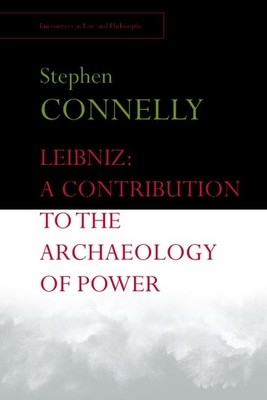
- Išsiųsime per 12–18 d.d.
- Autorius: Stephen Connelly
- Leidėjas: Edinburgh University Press
- ISBN-10: 1474418066
- ISBN-13: 9781474418065
- Formatas: 14 x 21.6 x 2.1 cm, kieti viršeliai
- Kalba: Anglų
- Extra -15 % nuolaida šiai knygai su kodu: ENG15
Leibniz: A Contribution to the Archaeology of Power (el. knyga) (skaityta knyga) | knygos.lt
Atsiliepimai
Aprašymas
Connelly demonstrates how Leibniz's rearticulation of power and its associated concepts is motivated at least in part by the struggles that marked the terrain in which his ideas were rooted - the struggle between Reformed and Scholastic theology, between natural law and natural right, and between mechanistic natural philosophy and human freedom. He locates Leibniz within power's wider evolution, and shows how the universal jurisprudence which Leibniz developed between the 1660s and 1690s can be considered as a transformative encounter between power, activity and modality.
Drawing on thinkers as diverse as Aristotle, Aquinas, Duns Scotus, Grotius, Husserl and Deleuze, Connelly traces Leibniz's conceptualisation of power through its applications in his legal texts, revealing that Leibniz in fact reconceptualises power under a new name: the state space. The move amounts to an internalisation of power as a moral world within each individual, submitting each practical agent to a universal set of obligations and prohibitions defined by that world. What though is at stake in bringing the objective world within each individual and submitting it to a public legal order? And what is the significance of this surgical intervention for any archaeology of power?
EXTRA 15 % nuolaida su kodu: ENG15
Akcija baigiasi už 4d.03:23:21
Nuolaidos kodas galioja perkant nuo 10 €. Nuolaidos nesumuojamos.

- Autorius: Stephen Connelly
- Leidėjas: Edinburgh University Press
- ISBN-10: 1474418066
- ISBN-13: 9781474418065
- Formatas: 14 x 21.6 x 2.1 cm, kieti viršeliai
- Kalba: Anglų Anglų
Connelly demonstrates how Leibniz's rearticulation of power and its associated concepts is motivated at least in part by the struggles that marked the terrain in which his ideas were rooted - the struggle between Reformed and Scholastic theology, between natural law and natural right, and between mechanistic natural philosophy and human freedom. He locates Leibniz within power's wider evolution, and shows how the universal jurisprudence which Leibniz developed between the 1660s and 1690s can be considered as a transformative encounter between power, activity and modality.
Drawing on thinkers as diverse as Aristotle, Aquinas, Duns Scotus, Grotius, Husserl and Deleuze, Connelly traces Leibniz's conceptualisation of power through its applications in his legal texts, revealing that Leibniz in fact reconceptualises power under a new name: the state space. The move amounts to an internalisation of power as a moral world within each individual, submitting each practical agent to a universal set of obligations and prohibitions defined by that world. What though is at stake in bringing the objective world within each individual and submitting it to a public legal order? And what is the significance of this surgical intervention for any archaeology of power?


Atsiliepimai